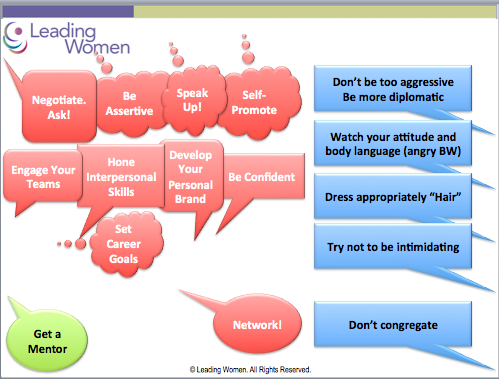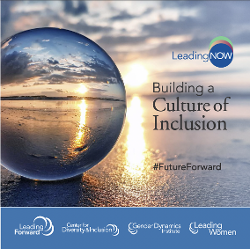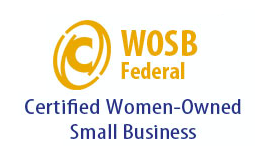![]()
February is Black History Month in the United States and what's historic this year is that while all around us change is endemic, when it comes to the advancement of Black women in major corporations, little is new. With a few exceptions - most notably: Ursula Burns, former CEO of Xerox, Rosalind Brewer of Walgreens, and Thasunda Brown Duckett of TIAA - the percentages of African American women at the top of and in director positions at Fortune 500 companies is appallingly small. The reasons are many, and we're grateful to share this insight gleaned from our work with multicultural women. For more African American women to make history in major corporations, women's leadership programs must address the fact that conventional advice to women can create problems for women of color.
Most women's leadership development programs rest on decades of conventional advice to women. (You will find more about this advice, its uses and its shortcomings in my TED Talk on Closing the Leadership Gender Gap.) This conventional advice to women can be grouped into 2 broad categories:
Communication & Team Skills
That covers advice such as:
- Speak up!
- Be assertive
- Negotiate/Ask
- Engage Your team(s)
- Hone interpersonal skills
- Be confident
- Self-promote
Career Skills
Advising women to:
- Set career goals
- Get a mentor
- Network
- Develop your personal brand
In general, this appears to be solid advice that would help anyone live up the expectations required to build a robust career. But because African American women often have to live down career-impeding stereotypes, this advice can guide them right into those very stereotypes.

For example, when it comes to communication and team skills, African American women tell us that if they follow much of women's conventional advice (advice in red call-outs such as "speak up" or "be assertive"), they run the risk of being seen as "angry black women" as eloquently described in this tweet:

Instead, the advice that's directed at them (advice in blue) is to "tone it down." Advice like:
- Don't be too aggressive
- Be more diplomatic
- Try not to be intimidating
- Watch your attitude and body language
In other words, as a woman, be assertive and confident, but because you're African American, not too much so!
Anyone want to navigate this double bind?
And African American women run into another double bind related to career advice to network. When their networking takes them toward others in their identity group, African American women report being advised not to "congregate."
These are only two example why conventional advice to "women" doesn't serve women of color. Latinas, Asian and other women also report challenges (that we'll examine in future blogs).
Leadership programs for women are most rich and effective when they include participants of diverse backgrounds, and when they address the limitations of conventional and generic advice to women. For more information on how Leading NOW's leadership programs work to address these challenges, contact us & download our brochure:
**"How Women's Leadership Development Programs Fail Black Women" first published in February 2014, updated February 2017.








